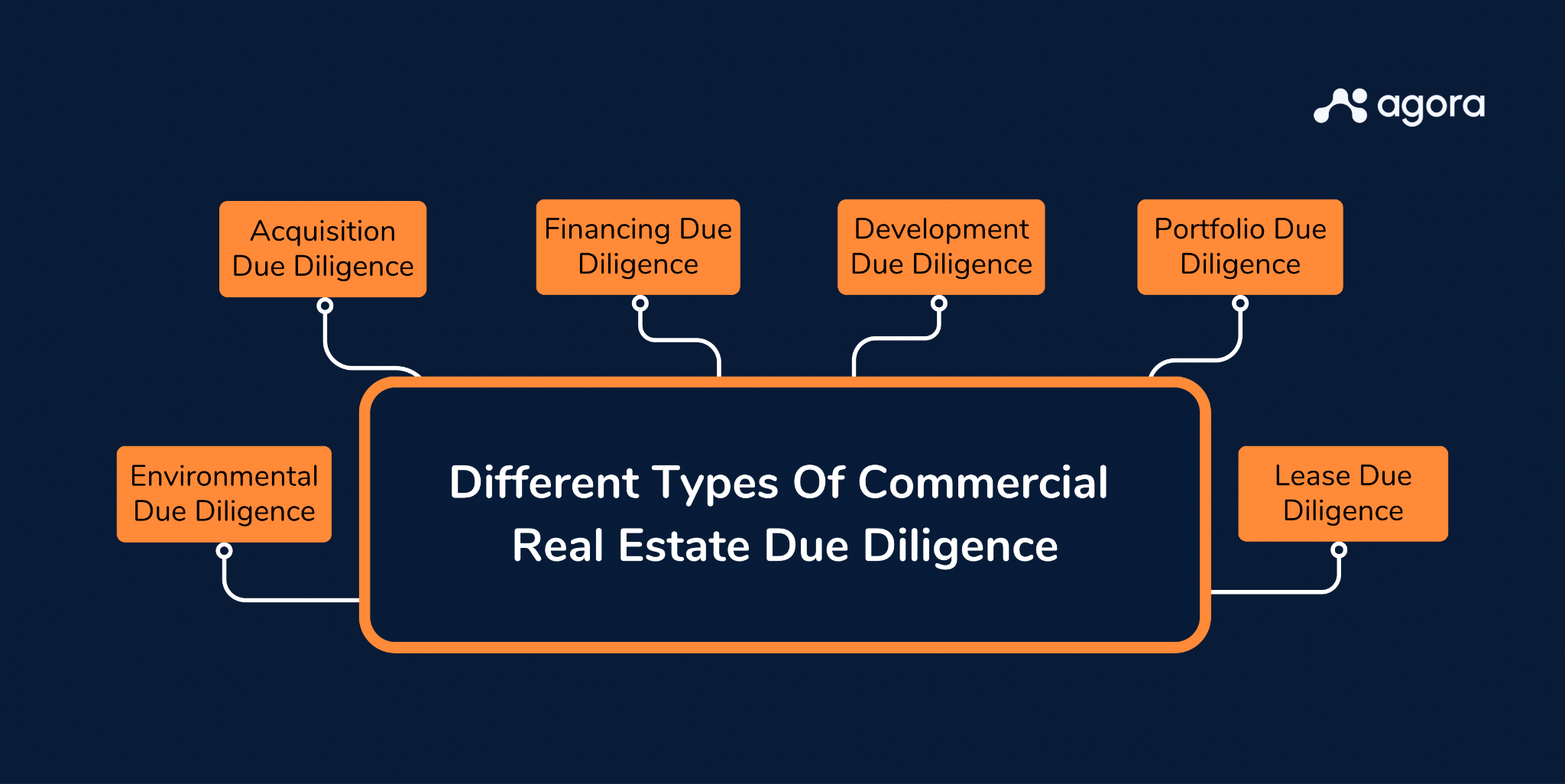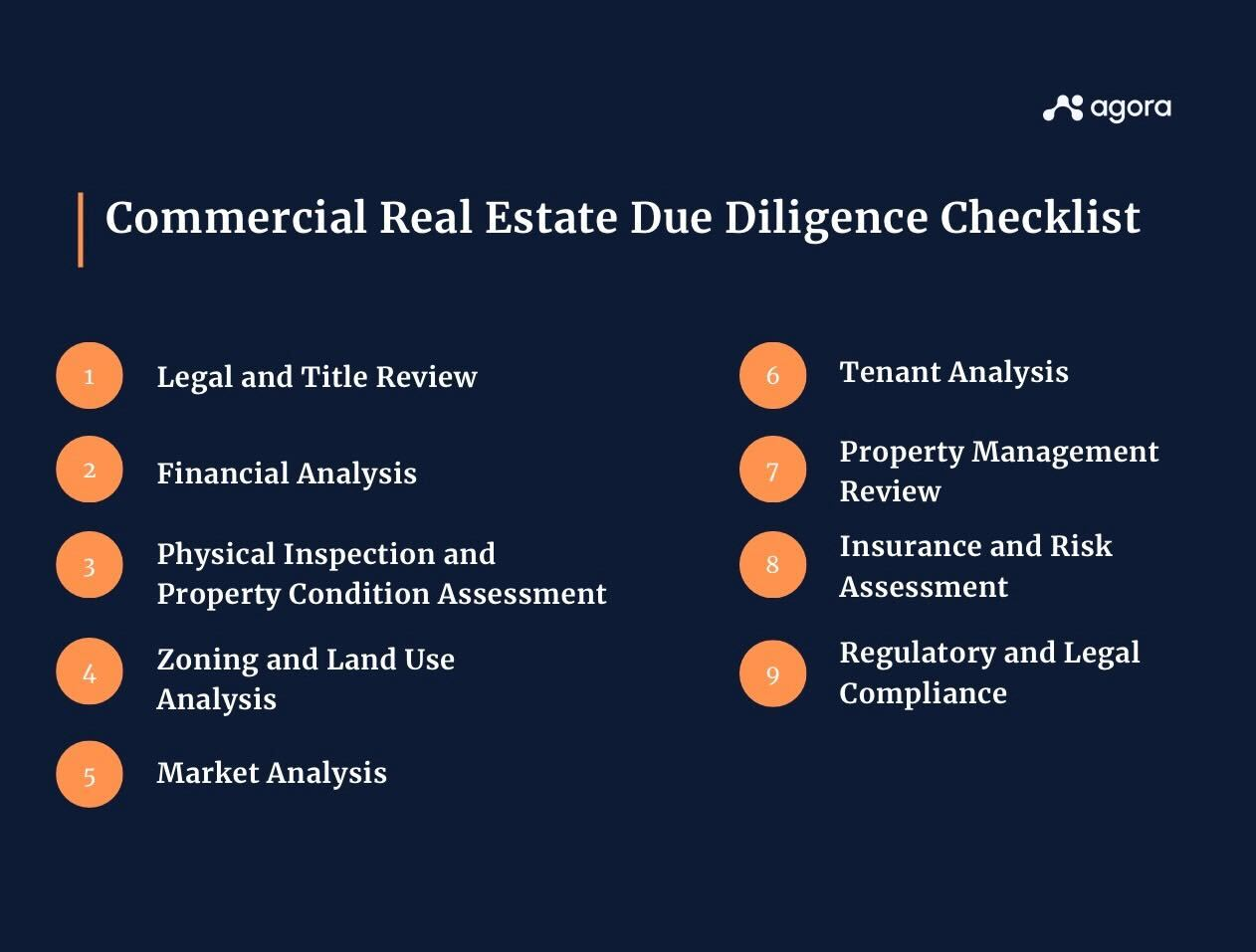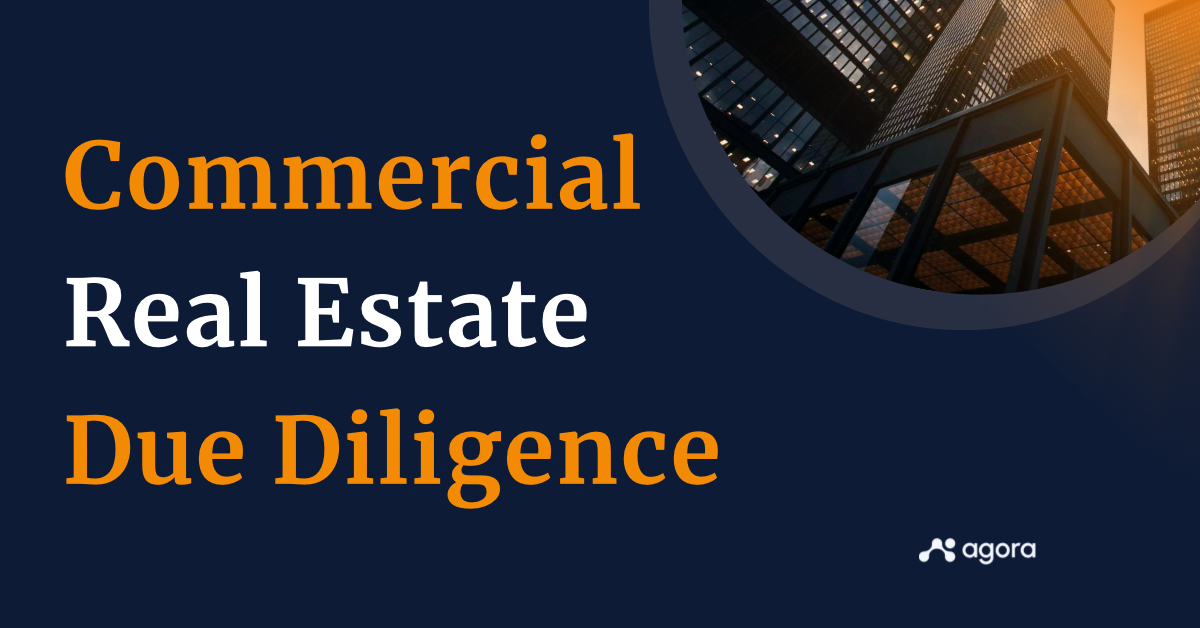Success in any business requires diligence-steady, earnest, and energetic effort. This is certainly true when it comes to commercial real estate due diligence. Without it, fortunes have been lost and reputations ruined.
This article will explain what commercial real estate due diligence is, and provide you with a checklist for thoroughness, some expert tips for succeeding with your due diligence process, and more.
What is commercial real estate due diligence?
Commercial real estate due diligence refers to the comprehensive investigation and analysis conducted by buyers, investors, or lenders before acquiring or financing a commercial property. It involves a detailed examination of various aspects of a property to assess its condition, potential risks and financial viability. In layman’s terms, it’s doing your homework.
Importance and benefits of commercial real estate due diligence
The importance and benefits of commercial real estate due diligence cannot be overstated. Here are three reasons you should put extra effort into due diligence when considering involvement in a commercial real estate project.
You mitigate risks: Due diligence helps identify and assess potential risks associated with a commercial property. It uncovers legal, financial, environmental, or physical issues that may impact your investment.
You can make informed decisions: The knowledge concerning the property while doing your due diligence enables you to make informed decisions regarding acquisition, investment, or financing. It reduces the likelihood of surprises or hidden liabilities after the transaction is completed.
You have more negotiating power: The information collected during the due diligence process can be used to negotiate a lower purchase price, better contract terms, or request remedial actions from the seller.
Lenders require thorough due diligence before providing financing for a commercial property. The foundation of knowledge it gives enables all stakeholders to proceed confidently and mitigate the potential pitfalls of not working on complete information.
Different types of commercial real estate due diligence

Commercial real estate due diligence can vary depending on the specific type of property and the nature of the transaction. Here are some different types of commercial real estate due diligence that are commonly conducted and their purposes.
| Type | Purpose |
| Acquisition due diligence | Gain a thorough understanding of the property’s financial, legal, and physical aspects to assess its suitability for purchase. |
| Financing due diligence | Focus on evaluating the property’s financial performance, cash flow, and creditworthiness of the buyer. |
| Development due diligence | Assess the feasibility and viability of the project, including zoning regulations, land use restrictions, market demand analysis, and construction and development costs. |
| Portfolio due diligence | Gain insights into the combined value, income potential, and risks associated with the portfolio as a whole. |
| Lease due diligence | Examine lease terms, rental rates, lease expiration dates, tenant creditworthiness, and other lease-related provisions. |
| Environmental due diligence | Evaluate the potential environmental risks associated with a property, including site assessments and historical records. |
The specific scope and focus of due diligence will depend on the nature of the transaction and the specific requirements of the parties involved.
Commercial real estate due diligence checklist
Here is a checklist outlining the key components typically included in a commercial real estate due diligence process:
- Legal and title review: Review title documents, surveys, and title insurance policies, and verify property ownership and any encumbrances, liens, or easements.
- Financial analysis: Review financial statements, including income statements, balance sheets, cash flow statements, rent rolls, and lease agreements.
- Physical inspection and property condition assessment: Conduct a site visit and inspection of the property to assess the property’s condition, confirm compliance with building codes, and identify potential maintenance or repair issues.
- Zoning and land use analysis: Review zoning regulations, land use restrictions, and permits to assess the property’s compliance.
- Market analysis: Evaluate the local real estate market, including supply and demand dynamics, rental rates, and property values. Compare the property to similar properties in the market.
- Tenant analysis: Review lease agreement and tenant profiles (creditworthiness, payment history, lease expirations, renewal rates, and potential vacancy risks).
- Property management review: Examine property management practices, including lease administration, rent collection, and maintenance procedures.
- Insurance and risk assessment: Review insurance policies and assess potential risks and liabilities related to the property.
- Regulatory and legal compliance: Examine compliance with local, state, and federal regulations, including environmental, ADA accessibility, and safety requirements.
It’s important to note that the particular items on the checklist may vary depending on the type of commercial property, it’s location, and the specific requirements of the transaction.
See our detailed commercial real estate due diligence checklist.

Tips for commercial real estate due diligence
When conducting commercial real estate due diligence, it’s essential to approach the process with thoroughness, attention to detail, and a strategic mindset. Here are some expert tips for effective commercial real estate due diligence.
| Action | Description |
| Use a detailed checklist | Use a checklist like the one shown above and tailor it to the specific property and transaction. |
| Assemble a qualified team | Engage a team of qualified professionals with expertise in various areas, such as attorneys, real estate agents, appraisers, inspectors, and environmental consultants. |
| Start early and allow sufficient time | Rushing through the commercial real estate due diligence process can lead to oversights and missed opportunities to uncover critical information. |
| Perform on-site inspections | Engage qualified inspectors and specialists to examine structural integrity, mechanical systems, environmental concerns, and other crucial aspects. |
| Thoroughly evaluate market conditions | This includes supply and demand, rental rates, and property values. Consider economic indicators, demographics, and future development plans that may impact the property’s performance. |
| Evaluate legal and regulatory compliance | Ensure compliance with all applicable laws, regulations, zoning codes, and permits. Review contracts, agreements, and legal documents for potential liabilities or obligations. |
| Seek expert opinions and second opinions | Don’t hesitate to consult with industry experts or seek second opinions when dealing with complex or high-value transactions. Their insights can provide valuable perspectives and help validate your findings. |
Conclusion
Commercial real estate due diligence is critical for mitigating risks and making informed decisions. Taking a systematic and thorough approach, supported by experienced professionals, will contribute to a successful and well-informed transaction.










